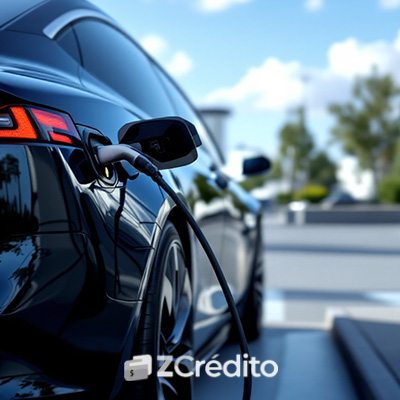Buying an Electric Car: Discover the Advantages of Switching to Electric Vehicles
Buying an electric car has become an increasingly popular choice for consumers looking to reduce their environmental impact and embrace the latest in automotive technology.
As environmental concerns continue to rise and technology progresses, more consumers are considering the leap to electric vehicles.
Buying an electric car offers numerous benefits that not only contribute to environmental sustainability but also provide enhanced driving experiences and cost savings.
Today we’ll delve into the various advantages of buying an electric car and why making the transition to electric could be one of the best decisions for you.
Advantages of Buying an Electric Car: Environmental Benefits ⚡
One of the primary reasons people choose to buy an electric car is the significant environmental benefits associated with these vehicles.
Electric cars produce zero tailpipe emissions, which drastically reduces their overall greenhouse gas output compared to internal combustion engine vehicles.
By choosing to drive an electric car, you contribute to reducing air pollution and dependence on fossil fuels, paving the way for a cleaner and more sustainable future.
Reduced Carbon Footprint
Electric vehicles (EVs) run on electricity, potentially renewable energy, which can significantly lower the carbon dioxide emissions per kilometer driven.
Transitioning from a gasoline-powered car to an electric one can reduce the carbon emissions contributing to climate change.
Quieter Operation
Electric cars offer a much quieter driving experience with less engine noise, which contributes to lower noise pollution levels in urban environments.
This reduced noise pollution not only enhances the quality of life in densely populated areas but also contributes to lessening overall environmental stress.

Buying an Electric Car: Economic Advantages 💲
Lower Operating Costs
Electric cars are cheaper to operate. The cost of electricity to power an EV is significantly lower than the cost of fuel for equivalent gasoline-powered vehicles.
Additionally, electric vehicles have fewer moving parts than traditional cars, meaning they require less maintenance and have lower ongoing costs.
Government Incentives
Many governments offer financial incentives for buying an electric car, such as tax rebates, grants, and exemptions from congestion charges.
Some regions also offer benefits like reduced registration fees and free parking, which can make electric vehicles more affordable and attractive to buyers.
Technological Benefits of Buying an Electric Car 📱
Advanced Features
Electric vehicles are often at the forefront of automotive technology. They frequently come equipped with the latest in driver-assist technologies, connectivity, and innovative features such as regenerative systems, which convert kinetic energy back into electric energy to help charge the battery while on the move.
Additionally, many electric cars feature sophisticated software that can be updated remotely to enhance vehicle capabilities and driving experience over time.
Enhanced Performance
Electric motors provide instant torque, offering quicker acceleration and a smoother ride compared to many gasoline vehicles.
This performance characteristic is particularly appealing to drivers seeking a more responsive and exhilarating driving experience.
Long-Term Benefits of Buying an Electric Car 📅
Increasing Resale Value
As demand for electric vehicles increases, their resale value is improving. Early concerns are being addressed, making EVs a smarter long-term investment.
Concerns regarding battery life and the associated costs of replacement are being mitigated through advancements in battery technology, which enhance durability and efficiency.
Lifestyle and Convenience Advantages
Owning an electric car also brings a number of lifestyle and convenience benefits. Many electric vehicles offer smart features like pre-conditioning, which allows drivers to heat or cool the cabin remotely while the car is still charging.
This means you can get into a comfortable vehicle every time, regardless of weather conditions.
Energy Independence
Electric vehicles can contribute to energy independence in a country. By using domestically produced electricity rather than imported oil, countries can reduce their dependence on foreign oil and enhance their energy security.
For individuals who have solar panels or other forms of renewable energy production at home, electric cars offer the possibility to fuel your vehicle from your own energy resources, potentially reducing transportation costs to nearly zero.
Is Buying an Electric Car Worth It? 🤔
Buying an electric car is worth considering due to its advantages over traditional vehicles, including environmental benefits, lower running costs, and advanced technology features.
As infrastructure improves and technology advances, the transition to electric vehicles becomes a more viable and appealing option for an increasing number of drivers globally.
Choosing to buy an electric car not only helps the environment but also offers a cutting-edge driving experience with the potential for significant savings over time.
Frequently Asked Questions ❓
1. Do electric cars typically cost more than conventional gasoline-powered cars?
- While the initial purchase price of an electric car can be higher, lower operating and maintenance costs and government incentives can offset the initial expense.
2. How frequently should I recharge my electric car?
- It depends on your driving habits and model. Most newer models can travel over 200 miles on a full charge, sufficient for daily commuting without daily charging.
3. Can I charge my electric car at home?
- Yes, you can charge an electric car at home using a standard outlet or a home charging station for faster charging.